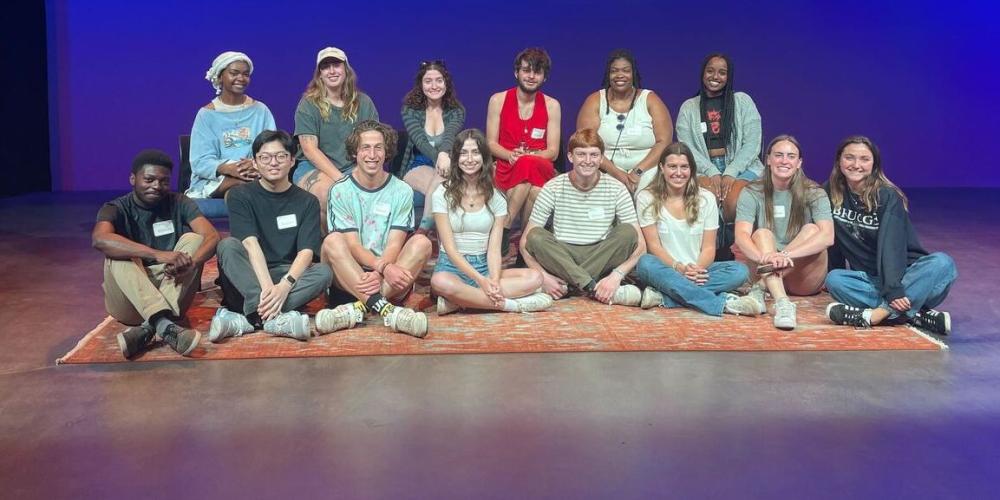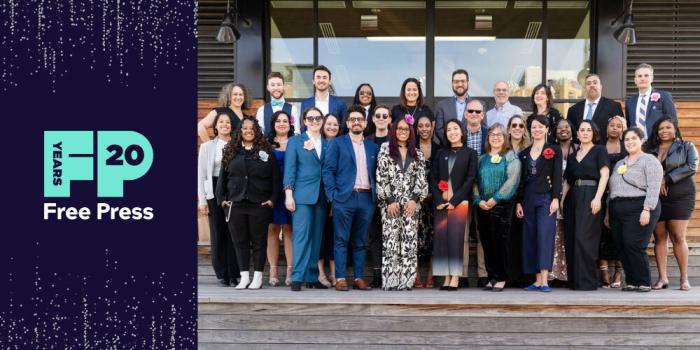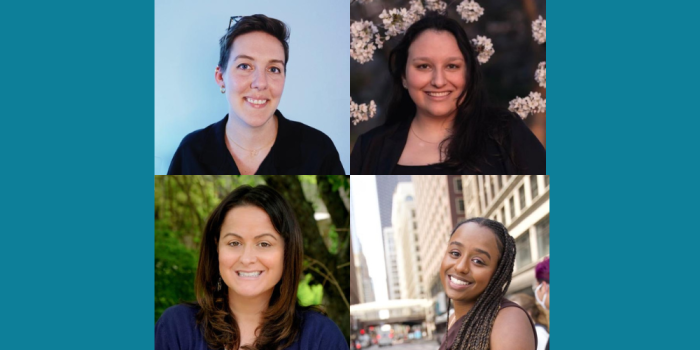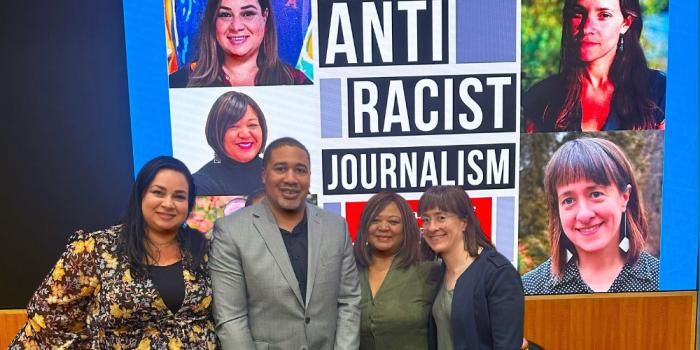Diagnosing the Media System: Media 2070 Launches a College Course

In 2020, months after racial-justice protesters rose up throughout the country, the Black caucus at Free Press launched the Media 2070 project. From the start, we knew we wanted to weave education into our mission of securing media reparations for harms inflicted on Black people. That’s why in 2022 we released our documentary Black in the Newsroom, which explores a mid-career journalist’s experience with low pay and systemic racism at The Arizona Republic. And it’s why we created our first-ever college course.
A trailblazing class on the fight for reparations
“Diagnosing the Media System” was a month-long class I taught in May at Colorado College, a small liberal-arts school in Colorado Springs. Free Press has deep roots in Colorado: We held the National Conference for Media Reform in Denver in 2013, and in 2021 we convened Black and Latinx working groups to examine how the state’s newsrooms could better serve communities of color.
Seventeen students enrolled in the class, which featured guest lecturers including Media 2070 Project Director Collette Watson and Media 2070 co-founder Alicia Bell. Many of the students had read the 100-page Media 2070 research essay — which chronicles media harms as well as Black resistance — in their introduction to journalism course. Using the essay as a starting point, we examined how the media system has harmed communities of color for centuries.
This dates back to colonial times, when profits from the trafficking of enslaved people helped keep newspapers afloat. The Boston News Letter, the nation’s first continuously published newspaper, published a slave ad less than a month after its founding in 1704 — with the publisher serving as the broker. In 1898, the white-supremacist publisher and editor of Raleigh’s News & Observer, Josephus Daniels, engineered a disinformation campaign that helped incite a coup. The violent attack overthrew Wilmington, North Carolina’s multiracial government — the only armed overthrow of a local government in U.S. history.
In examining this history of harm, the class drew on texts including the historic 1968 Kerner Commission report — which faulted the media for contributing to the nation’s “black-white schism” — and News for All the People: The Epic Story of Race and the American Media, which Free Press’ Joseph Torres co-wrote. We explored how the crime beat parrots police talking points and stigmatizes Black people — and imagined alternatives that would center communities.
And we examined how the media operates as a system. Most people believe that the media is some nebulous, unbiased thing that just happens to exist. In reality — similar to the criminal-justice system or the health-care system — the media system was intentionally constructed and designed to hoard power, extract labor and primarily benefit the political and material interests of certain people (mainly, white men).
We also delved into the power of apologies. In the wake of George Floyd’s murder, news outlets ranging from The Los Angeles Times to the Kansas City Star have apologized for harming Black communities. Some of these apologies have been superficial and performative; we examined how The Guardian, on the other hand, engaged in a program of restorative justice after uncovering its founders’ links to the transatlantic slave trade.
From harm to reparations
A powerful quote from pioneering journalist and anti-lynching activist Ida B. Wells guided Media 2070’s design of this class: “The way to right wrongs is to turn the light of truth upon them.”
We believe that it’s necessary to acknowledge the harmful history of U.S. media — and demand accountability — to build something better. Going beyond apologies and acknowledgements of wrongdoing, we explored the reparations cycle developed by our close allies at Liberation Ventures. Ultimately, the goal of the cycle is redress, which includes meaningful transfers of power and actual follow-through on promises of restitution. Redress leads to a future in which our people can survive and thrive.
We believe care must be part of that future. In 2021, Media 2070 called on news organizations to sign a pledge to care for Black journalists and communities. Within the media-reparations college course, we looked more deeply at what processes could generate care. In one project, students created a harm audit of the media system as a whole; they then created a care plan for what they envisioned a future media could look like.
Within their harm audit, students asked questions about articles that did a poor job of reporting on issues of race and justice — and asked what newsrooms could do differently. The care plan was a set of recommendations to consider and implement. As part of their final project, students developed a speculative report in which they wrote a future headline — lifting up their dreams of a just future — and then crafted opinion pieces documenting the strategies needed to arrive at that future. Exploring issues including gun control, climate change and racial justice, the students indicated a great appreciation for class sessions where they could use their imaginations to dream up what a new kind of journalism and world could look like.
The Media 2070 team is hoping to take this course to other college campuses, especially Historically Black Colleges and Universities (HBCUs). We’re also exploring ways to collaborate with professors to weave some of these teachings into existing coursework and academic programming.
As we contemplate what’s next for the media-reparations curriculum, the Media 2070 team is drawing inspiration from our Colorado College students. One Black student said that prior to taking the class they were losing hope that things could ever be different — but the course illuminated what was possible, and energized them to get involved in the fight for media reparations. At the conclusion of the class, another student offered a similar reflection on what they anticipate for their future: “On my way to dismantle the systems of harm in the media!”





